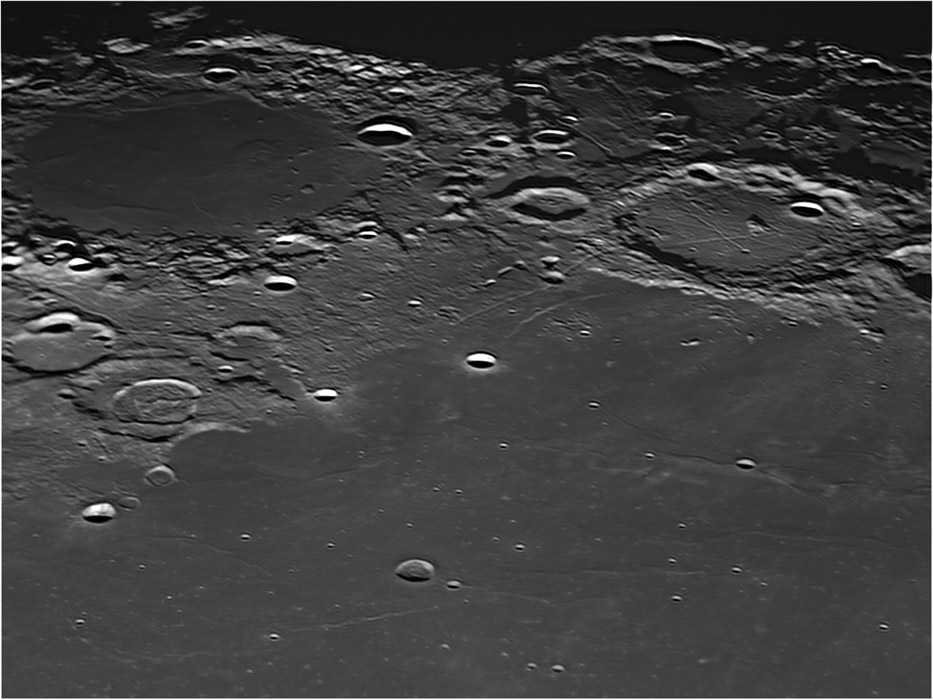December 1, 2024
Smooth Evidence
Originally published July 2, 2014

image by Jordi Delpeix Borrell, l'Ametlla del Vallès (Barcelona) Spain
Tonight I had to decide between observing the Moon with my own telescope or doing a new LPOD. So I was ready to lug the scope out on the deck, but then saw that I need not bother. The Moon was visible from everywhere in my neighborhood except from my house. Two wonderful old trees, at least a hundred feet tall, are the only ones left in the neighborhood, and they completely block my view of the Moon tonight. Sigh. But Jordi has sent a great view to remind me of what I am missing. What attracted my attention in his image, other than the diagonal shadow cast by Miyamori's Line, is the amazing contrast between the very smooth Oceanus Procellarum lavas and the adjacent heavily cratered terrain. The mare here is about 3.4 billion years old, so (except for a few bright young craters) all the craters in the highland formed in the billion years before that date. The original surface below the lavas must have also been filled with craters but they have essentially all been obliterated. The origin of the area that contains Procellarum lavas is uncertain. Was there a giant impact basin there - bigger than the South Pole - Aitken Basin - that did the obliteration? There is circumstantial but not compelling evidence for the proposed Procellarum Basin. But the area covered by the lavas is not just a random low zone or we would expect to see all sorts of crater rim remnants sticking up. It may be that the smoothness we readily observe across Procellarum is the evidence that shows a catastrophe did occur here - a giant basin-forming, prehistory-erasing event.
Chuck Wood
Technical Details
March/14/2014. C9,25" + Barlow 2X + ASI 120MM. Processed with Registax6
Related Links
21st Century Atlas charts 26 & 27.
Yesterday's LPOD: New View of Old Domes
Tomorrow's LPOD: Little Ones in a Big One
COMMENTS?
Register, Log in, and join in the comments.



